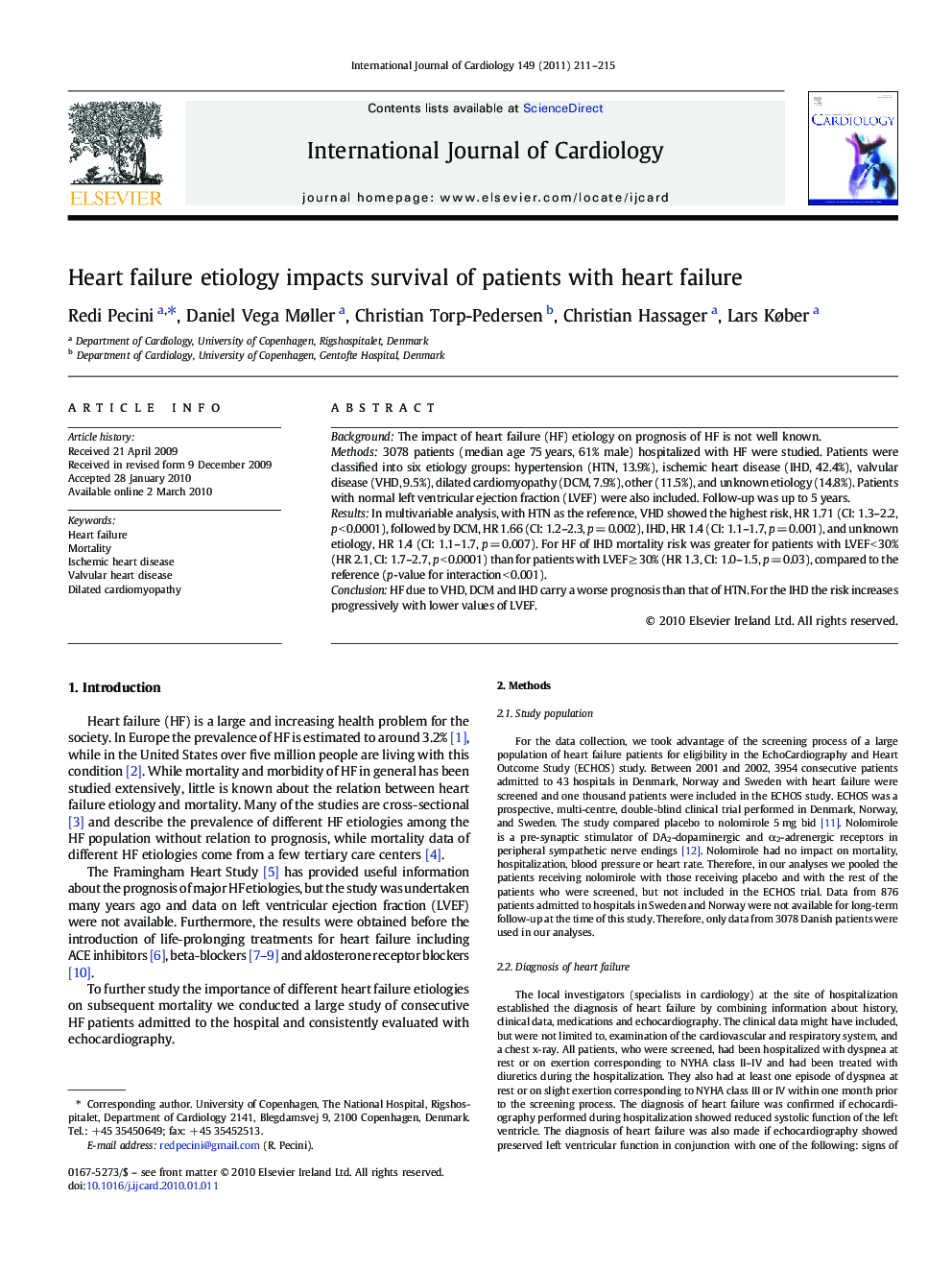| Article ID | Journal | Published Year | Pages | File Type |
|---|---|---|---|---|
| 5979088 | International Journal of Cardiology | 2011 | 5 Pages |
BackgroundThe impact of heart failure (HF) etiology on prognosis of HF is not well known.Methods3078 patients (median age 75 years, 61% male) hospitalized with HF were studied. Patients were classified into six etiology groups: hypertension (HTN, 13.9%), ischemic heart disease (IHD, 42.4%), valvular disease (VHD, 9.5%), dilated cardiomyopathy (DCM, 7.9%), other (11.5%), and unknown etiology (14.8%). Patients with normal left ventricular ejection fraction (LVEF) were also included. Follow-up was up to 5 years.ResultsIn multivariable analysis, with HTN as the reference, VHD showed the highest risk, HR 1.71 (CI: 1.3-2.2, p < 0.0001), followed by DCM, HR 1.66 (CI: 1.2-2.3, p = 0.002), IHD, HR 1.4 (CI: 1.1-1.7, p = 0.001), and unknown etiology, HR 1.4 (CI: 1.1-1.7, p = 0.007). For HF of IHD mortality risk was greater for patients with LVEF < 30% (HR 2.1, CI: 1.7-2.7, p < 0.0001) than for patients with LVEF â¥Â 30% (HR 1.3, CI: 1.0-1.5, p = 0.03), compared to the reference (p-value for interaction < 0.001).ConclusionHF due to VHD, DCM and IHD carry a worse prognosis than that of HTN. For the IHD the risk increases progressively with lower values of LVEF.
